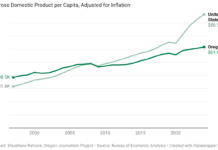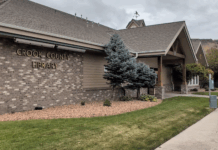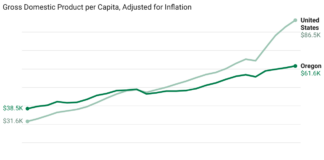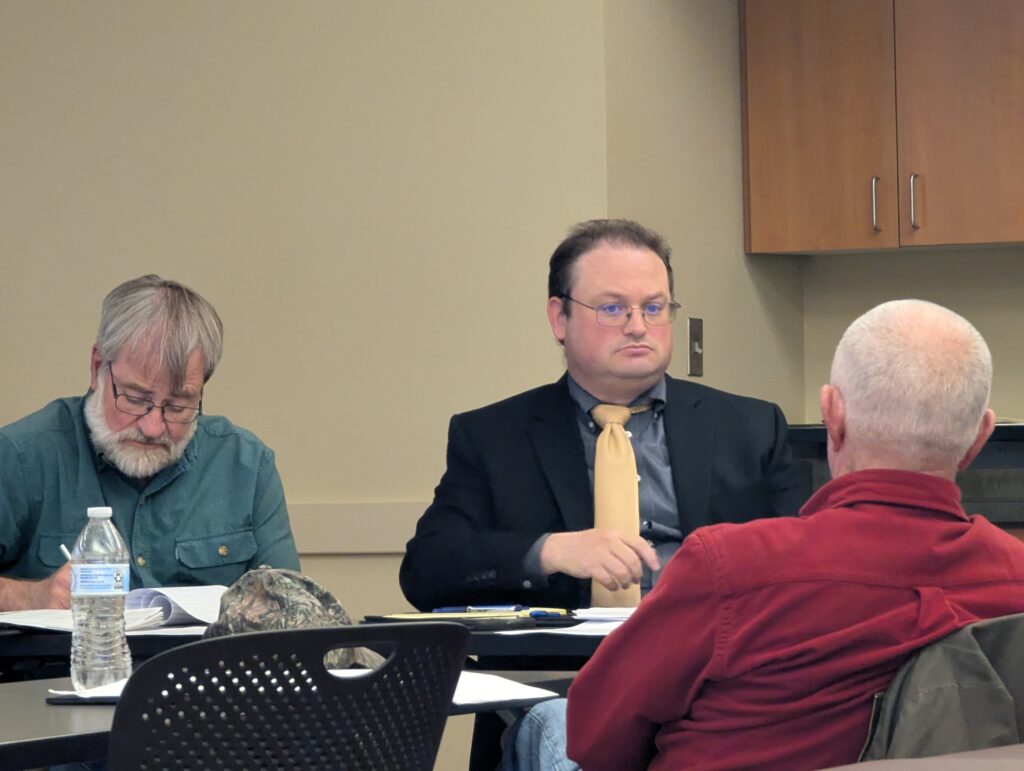
Prineville, Ore. – Crook County has begun rolling out new transparency initiatives after mounting scrutiny over its handling of public records and compliance with Oregon’s open government laws. The steps include mandatory training, new policies for livestreaming and recording meetings, and a commitment to revisit how the county processes records requests.
On September 3rd, the Crook County Board of Commissioners voted to adopt a new public meetings policy spearheaded by County Manager Will Van Vactor. The policy applies to all governing bodies under the county’s jurisdiction — though not to independent entities such as special districts or city government — and provides officials and staff with checklists and guidance on complying with Oregon’s public meetings law.
Among its core elements is a requirement that all county boards and commissions not only ensure livestreaming, as state law already requires, but also record their meetings and upload those recordings to the county’s YouTube channel to improve public access. The public can already access and review the surge in available meeting recordings.
Van Vactor described the new policy as a workable step forward.“We’re a smaller organization. We don’t have a dedicated person on staff to help with public meetings, so we kind of have a decentralized way of conducting them,” he said. “But we’ve landed in a good spot… making sure we have a plan in place to get meetings uploaded in a timely way so the public can see what happened if they weren’t able to attend.”
He added that existing virtual meeting technology, expanded during the COVID-19 pandemic, allowed the county to implement the changes at little additional cost.
The action addresses problems that began coming to light last year after the Prineville Review uncovered systemic issues with how Crook County handled public meetings. Those issues included failures to provide timely notice of committee meetings, lapses in keeping and publishing meeting minutes, inconsistency with remote access, and misuse of executive sessions. One example previously reported by the Prineville Review was the county’s illegal use of executive session during the appointment process to fill vacancies on the Crook County Fair Board. Officials even admitted it had been a longstanding practice, even though executive session is a longstanding and core element of the meetings law.
While the Board of Commissioners directed the Fair Board to restart the process before they would move to consider any recommendation for appointment, the majority of the Fair Board members initially, but unsuccessfully, attempted to defy the Commissioners by standing by their recommendation. The Board of Commissioners revealed to the Prineville Review that they had zero intention of changing their position, a stance that eventually caused the Fair Board to reverse course and restart the process. The Fair Board ultimately made the same recommendation to appoint former Deschutes County Sheriff Larry Blanton to the position, which was approved by the Board of Commissioners.
Deficiencies extended to the county’s top governing body itself. The Board of Commissioners frequently sent out meeting agendas only a day before its regular meetings. That practice was inconsistent with longstanding guidance from the Oregon Attorney General’s office, which has held that notice should generally be given at least a week in advance under ORS 192.640’s “reasonable notice” requirement. More recently, the Oregon Government Ethics Commission issued a clarification that regular meeting notices must be posted as soon as reasonably possible — and in no event less than 48 hours in advance.
The Prineville Review also documented how the county’s Natural Resources Advisory Committee (NRAC) relied on “subcommittees” to conduct business in meetings that were almost never noticed to the public. When this publication filed a formal public meetings grievance in November 2024, County Counsel Eric Blaine characterized the matter of a secret unnoticed October 2024 meeting as an isolated incident, as did Crook County’s Natural Resource Director Tim Deboot. However, records released in recent months following a public records battle revealed the practice had been ongoing for years, with numerous subcommittees being formed and meeting without notice.
Blaine also claimed that the allegation that the meeting was “not public” was false and that it was indeed open to the public and that members of the public attended, while simultaneously admitting the NRAC did not notice the meeting. Officials would not further explain how the meeting could be considered public when it’s not even noticed. The fact that others attended the meeting only raised more questions on how those individuals were selectively informed since the body admitted to not providing public notice.
In addition, the NRAC’s chair, Steve McGuire, suggested during a meeting addressing this publication’s November public meetings grievance that the board as a whole should blacklist the Prineville Review over its grievance — a statement Blaine later said he “completely” agreed with. The remarks drew further attention to the blowback to this publication’s efforts to seek information and reporting on local government, particularly as the public records dispute continued.
That also included subsequent reporting that revealed that an NRAC member who played a key role on a subcommittee related to potential private land purchases by the U.S. Forest Service (USFS) last year never declared even the potential of a conflict of interest despite his private company drawing hundreds of thousands of dollars through contracts with the federal agency.
Oregon Public Records Advocate Todd Albert also reviewed Crook County’s handling of a records request centered on the NRAC earlier this year after the Prineville Review challenged the county’s fee waiver process, in particular, the step to determine “public interest” justifying fee waivers or fee reductions. Albert found that the county’s approach, which required Board of Commissioners approval of fee waivers, did not comply with Oregon law. He also cited remarks by Commissioner Susan Hermreck during the review as troubling, saying they suggested a dismissive view of public access rights. While Albert did not formally order the county to change course, the county reversed its position in March after nearly a half-year dispute and began releasing the requested records.
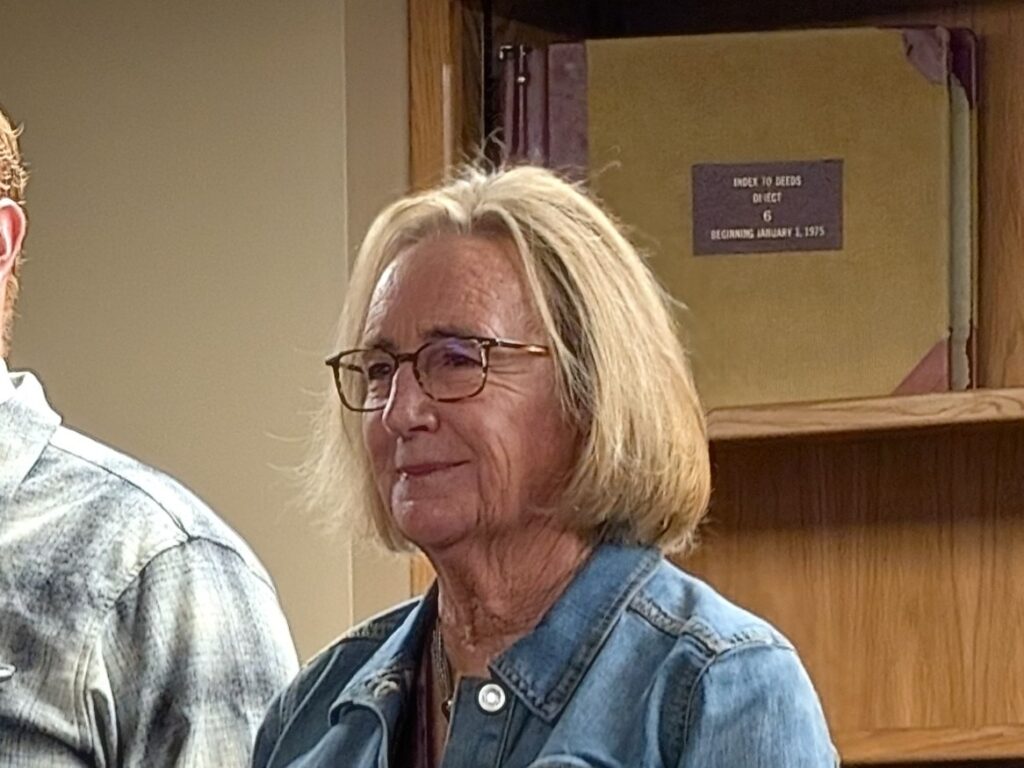
Despite that reversal, the release process has remained slow. Blaine had originally estimated that the legal review would take no more than 2.5 hours (an estimate based on double the revised scope of records), yet the records continue to be released only in small batches more than ten months after the original request. The slow, piecemeal production has raised further questions about whether the county’s legal office is continuing practices that create unnecessary delay and frustration under Oregon’s public records law, even after being rebuffed by the state’s public records advocate during the process.
In a response to another public meeting’s grievance — this one concerning the county’s failure to provide timely notice of a hearing on expansion requests tied to a controversial solar farm off Highway 126 which had nearly zero public attendance — Blaine referred to the publication only as “Mr. Alderman’s website,” not once addressing any part of the letter or references that included the Prineville Review or Western Media Group. The response was made on behalf of the Crook County Commissioners.
Blaine also went on to characterize our grievance as taking issue with efforts for paid advertisements of the meeting in the Central Oregonian, while not doing so with the Prineville Review, a claim this publication believes is a mischaracterization of our dispute in the County’s efforts to provide notice of meetings.
Editor's Note: The Prineville Review has never made such a claim over advertising and instead has only raised issues as to the County's obligations to provide this publication notice of meetings to enable us to be both aware of the meetings and for us to publish information to inform the public. This is part of the requirements to provide meetings notice to representatives of the news media as outlined in Oregon's Public Records Law under ORS 192.640.
That grievance prompted the county to reschedule the hearing, which in turn led to a larger public turnout and more extensive public comment. The expansion for the solar project was ultimately passed on a split vote, with Commissioners Susan Hermreck and Brian Barney approving and Commissioner Seth Crawford dissenting.
Blaine has repeatedly characterized this publication’s efforts to address public meeting issues through a formal grievance process laid out under Oregon law as harassment and “complaints”, despite the fact that a formal complaint with the Oregon Government Ethics Commission (OGEC) for public meeting violations is a subsequent step in the process following the submission of a grievance. The grievance process laid out under Oregon law is intended to provide the public body an opportunity to dialogue with the submitter of a grievance to address concerns in the hope of avoiding it being escalated to a formal complaint.
In many cases, grievances submitted by The Prineville Review have led to recognition of violations and corrective action, resolving alleged issues without the need to file a formal complaint. Before changes to state law in 2022, the only recourse available to the public or the press to challenge violations of Oregon’s public meetings law was to pursue costly lawsuits.
This dynamic has sometimes left public officials with the mistaken belief that the publication has filed numerous formal complaints, triggering Oregon Government Ethics Commission investigations. The Prineville Review has sought to clarify this with officials who raised the issue during meetings or who contacted the newsroom directly after discussions with County Counsel Eric Blaine.
While raising the issue of Blaine’s characterization publicly in December, he reaffirmed his position of commonly referring to the grievances as “complaints”.
Under the law, grievances must be filed within 30 days of the actual violation, regardless of when the violation is discovered, an issue the Oregon Legislature took up earlier this year but failed to move out of committee. To date, the Prineville Review has only submitted complaints with the OGEC on two occasions, and those occasions were only due to repeated violations that the grievances (and the public body’s respective responses) failed to correct and ultimately resulted in hindering or denying access to the public or the press.
Commissioner Crawford said that scrutiny from media outlets has helped push the county to improve. “I think your publication and others have brought this up, and we’ve looked at [our systems] internally and found ways to improve — and not just fall to the letter of the law, but find some best practices that we can do on top of what is completely required in order to be as transparent as possible,” Crawford said.
Crawford also noted the role of state-mandated public meetings training, now required for all boards and commissions in counties with revenues exceeding $1 million. “If you’re following the rules and it’s set out ahead of time that this is required, I do think that that’s helpful,” he said.
Even with this recent attention, some local special districts continue to resist basic requirements of Oregon’s meetings law. Both the Highland Subdivision Water District and Crook County Cemetery District (CCCD) have received formal training from the Special Districts Association of Oregon (SDAO), yet both have publicly criticized the Prineville Review’s coverage and scrutiny of their respective public meetings. Those issues include failing to provide timely notice of meetings and denying remote access. The CCCD has twice denied the Prineville Review’s requests to attend executive sessions remotely, despite allowing its own contracted legal counsel to participate by video. Oregon law requires that if remote access is provided to any party, it must also be provided to members of the press.
County leaders say the next step is reforming records handling. “In reviewing some of the concerns that were raised earlier this year, I think there’s an opportunity for us to improve our process internally,” Van Vactor said. “We want to make sure it works for everybody, including the public who may be making these requests, as well as staff here at the county, in terms of making it efficient on our end and as burden-free as possible.”
Crawford said he expects those reforms to continue incrementally. “We’ve done a really good job of working through the public meetings. Next, we move on to the public records request. And I’m sure there’s even more stuff… that we will need to start looking at next.”
Oregon’s open government laws, particularly ORS Chapter 192, have been tested repeatedly in recent years. Crook County’s latest reforms reflect a response to that environment, with county officials pledging that the new steps will strengthen compliance while acknowledging that additional improvements remain ahead.
Last year, InvestigateWest released a detailed report on public records issues across the Northwest. Oregon specifically was cited for its use of excessive fees and the State’s need to even create the Office of the Public Records Advocate due to growing frustration among the media and the public.
Now that the public meetings policy was passed, Van Vactor also confirmed that he was moving on to address the policies and procedures for handling the public records side of its transparency obligations. Commissioner Crawford has repeatedly questioned the effectiveness of the current system, particularly after the Prineville Review raised concerns about the county’s practice of routing most records requests through its legal counsel.
One of Crawford’s biggest concerns is that much of the handling performed by the county’s legal team cannot legally be charged to a requester — for example, the time spent processing or coordinating requests — and only the actual time spent reviewing or redacting exempt material may be billed. In many jurisdictions, attorneys are only brought in to review complex requests involving exemptions, not to serve as the primary point of contact for routine records or review.
The Prineville Review has repeatedly sought comment from Commissioners Brian Barney and Susan Hermreck in recent months, but both have declined to respond on a number of issues. Blaine has likewise declined at least two requests for in-person comment following public meetings. Their stance mirrors that of other local officials who, according to their own statements made publicly and accounts shared by sources speaking on condition of anonymity, appear to have adopted a de facto blacklist of this publication in response to its reporting on local government.
Mr. Alderman is an investigative journalist specializing in government transparency, non-profit accountability, consumer protection, and is a subject matter expert on Oregon’s public records and meetings laws. As a former U.S. Army Military Police Officer, he brings a disciplined investigative approach to his reporting that has frequently exposed ethics violations, financial mismanagement, and transparency failures by public officials and agencies.


